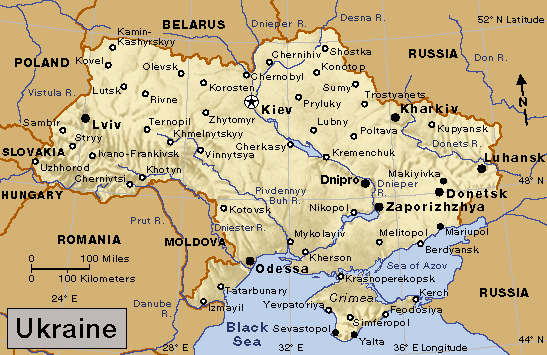Yanukovych and Ukrainian Opposition Strike Compromise
February 21, 2014
Ukrainian President Viktor Yanukovych and leaders of the anti-government opposition reached a compromise agreement this morning designed to end the political crisis that has turned Kiev, the capital, into a battleground. After hours of talks with opposition leaders, Yanukovych agreed to hold new elections by December; to form a national unity government; and to restore a constitution drafted in 2004 that would reduce the power of the president. After French, German, and Polish foreign ministers witnessed the signing of the agreement, German Foreign Minister Frank-Walter Steinmeier issued a statement commending both sides “for their courage and commitment to the agreement” and calling for “an immediate end to all violence and confrontation in Ukraine.” However, it remains unclear whether protesters in the streets will back the agreement, which leaves Yanukovych in power until at least the end of the year. Many protesters have declared that nothing short of his immediate resignation will satisfy them.

The western half of Ukraine supports closer ties with the European Union. The eastern half, where most people speak Russian and are of Russian descent, continues to support Viktor Yanukovych's move to bind Ukraine closer to Russia. (World Book map; map data © MapQuest.com, Inc.)
Shortly after the deal was signed, Ukraine’s parliament approved the immediate restoration of the 2004 constitution and granted amnesty to protesters accused of involvement in recent violence. The parliament also voted to release former Prime Minister Yulia Tymoshenko, who has been imprisoned for more than two years. In 2011, Tymoshenko was found guilty of abuse of power and sentenced to seven years in prison. Many Ukrainians and most western leaders denounced both her trial and sentence as political motivated.
Today’s agreement comes after the bloodiest day yet in the three-month uprising. Yesterday, Ukrainian security forces in Kiev killed at least 50 protesters following the breakdown of a truce agreed to on February 19. Military-grade weapons were issued to police, and according to witnesses, snipers shot protesters from rooftops around Independence Square, the center of the demonstrations.
The unrest in Ukraine began in November when Yanukovych rejected a trade deal with the European Union in favor of closer ties with Russia. His move to bind Ukraine to Russia infuriated the residents of western Ukraine who want the country allied to the West with its tradition of democracy and capitalism. Yanukovych remains popular in the Russian-speaking eastern half of the country, where economic and cultural ties with Russia are strong.
Additional World Book articles:
- Kuchma, Leonid Danylovich
- Viktor Yushchenko
- Ukraine 2004 (a Back in Time article)
- Ukraine 2005 (a Back in Time article)
- Ukraine 2009 (a Back in Time article)
- Ukraine 2010 (a Back in Time article)
- Ukraine 2011 (a Back in Time article)
- Ukraine 2012 (a Back in Time article)


